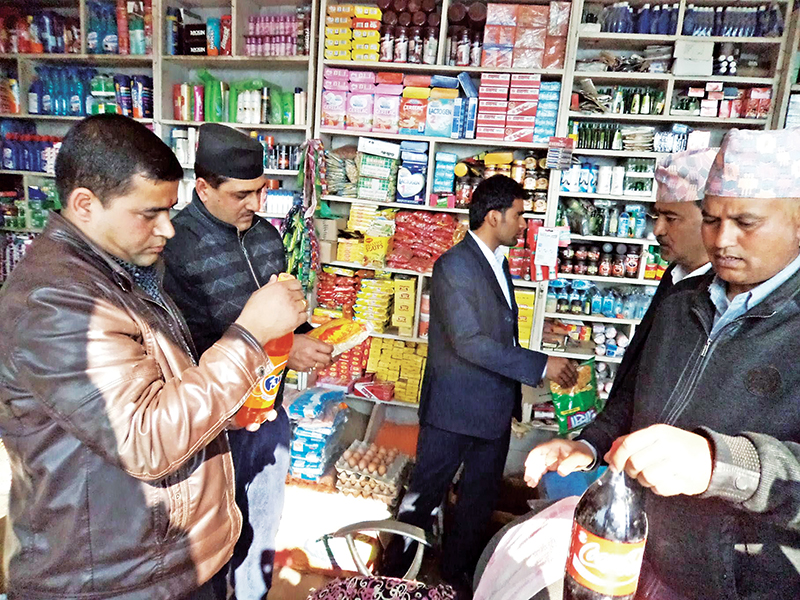Market monitoring mechanism at local levels sought
The government has been talking about forming a consumer code since long, but no initiative has been taken on the front
— Madhav Timalsina, president, Consumer Rights Investigation Forum
Kathmandu, May 26
Consumer rights activists have urged the government to ensure market monitoring mechanism even at local levels in the budget for the next fiscal year. With just a few days left for the government to announce the budget, consumer rights activists expect it to address the need for strong market monitoring to secure consumers’ rights.
“Market monitoring activities are limited to festive seasons only. It is necessary to conduct market monitoring throughout the year to make it effective,” said Madhav Timalsina, president, Consumer Rights Investigation Forum.
He said market monitoring had to be decentralised to local levels for bigger impact.
“The government needs to establish division offices and add more human resources for the purpose.”
Reminding the government of its commitment to form a separate institution to monitor supply of goods in the market, Timalsina said the commitment had remained on paper only.
The government has also been talking about forming a consumer code since long, but no initiative has been taken on the front, he claimed.
Prem Lal Maharjan, president of Forum for Protection of Consumer Rights, said the government had to bring a result-oriented budget. “Most of the plans remain confined to the budget speech only,” he said. Maharjan added that the country’s monitoring mechanism was weak with weak policies and planning, as such more effective programmes needed to be introduced and implemented.
As the country has adopted the federal system of governance, there needs to be effective market monitoring at local levels also, he added. “It is the fundamental right of consumers to consume quality products. The task of market monitoring to ensure consumer rights should be entrusted to local levels.”
Activists added that the budget should bring a new system of levying value-added tax. “Consumers have to pay VAT irrespective of the type of service they receive, hence the government should establish a system of monitoring such activities,” Maharjan said.
“Why should consumers pay VAT when they are not getting the service they are promised?”
They have also urged the government to bring a mechanism to stop artificial shortage of goods in the market. “Consumers have to pay high price for goods every time traders create artificial shortage in the market, especially during festivals,” Timalsina said, adding, “To end such artificial shortage, a strong market monitoring is required.”
“It is the responsibility of the government to ensure the basic needs — food, shelter, clothes, health and education — for all.
Programmes to guarantee that these needs are met have to be included in the next budget,” Timalsina added.






